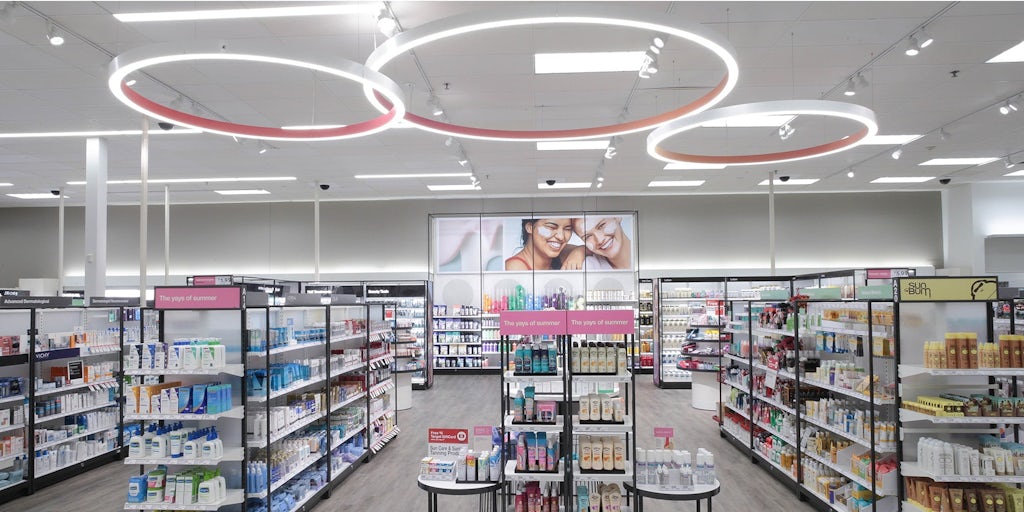Zadig & Voltaire CEO Rémy Baume Outlines Vision for Label – WWD
PARIS — With new chief executive officer Rémy Baume at the helm, rock-chic accessible luxury label Zadig & Voltaire is in expansion mode. Past the shock of the initial coronavirus lockdowns, the world has emerged a faster-paced place, observed Baume in a recent interview at the brand’s Paris headquarters.
“I don’t think we’re in an entirely new world, rather we are in the world of tomorrow, where everything moves faster,” he said.
“There’s a reassuring side to this — it’s not a completely new world that we have to discover without knowing the rules, but we have just jumped two or three years ahead on certain subjects,” added the executive.
That includes digital business, which has gained considerable ground as people do more from home.
The company is well-positioned on this front, with a fourfold increase in Internet traffic during the lockdown period, a much higher rate than competitors, estimated Baume.
The executive was previously ceo of Kidiliz Group, a company that created kids clothing lines for brands like Kenzo, Paul Smith, Jean Paul Gaultier, Levi’s and Catimini. Recruited at the beginning of the year, Baume arrived along with a new minority investor, private equity firm Peninsula. The company’s previous investor, TA Associates, helped it double in size and expand into the U.S. Zadig & Voltaire was founded in 1995 by Thierry Gillier, who remains majority owner.
Baume, a business school graduate who started his career in mergers and acquisitions, noted his past position taught him about navigating a fragmented sector — which he sought to consolidate in a manner similar to that of Luxottica in eyewear — as well as giving him an understanding of how a variety of creative visions operate.
“I saw firsthand how 16 different labels worked in fashion in very different universes — it was an enriching experience that serves me well here,” he said.
Just as he arrived in his new position, the wave of lockdowns swept through Europe and the U.S.
“I was lucky because the team in place is good and people knew what had to be done,” he said, noting that the unusual circumstances allowed for a sped-up adapting period.
The company had been doing well when he joined, with a healthy store network and overall growth of around 20 percent, explained the executive. It had also already undergone a review of collections, working to better anticipate the needs of various countries and recalibrating men’s and women’s collections with a tighter focus.
The lockdown period prompted a review of product schedules with retail and merchandising teams, as well as discussions with suppliers — which he sees as partners — as factories closed.
“We needed to be very agile,” he said.
The second phase centered on reaching out to clients.
“During the second phase of the confinement, as we started preparing to open, the teams did a lot of clienteling, reaching out to our clients through WhatsApp and through text messaging to present the upcoming collections,” he said, noting the focus was on local clients.
Meanwhile, online sales reached new levels.
“For me, this was a big message from consumers that they want Zadig products in their lives,” he asserted, noting that even during the most anxiety-ridden period, in the beginning of March, the brand saw a strong acceleration in online sales.
Zadig & Voltaire previously generated around 15 percent of sales through digital channels, but now has surpassed the 20 percent level, he said, cautioning that it remains to be seen how the figures will stabilize in the future.
“We passed a milestone when it comes to closing the frontiers between retail and digital worlds,” he noted.
Baume described the brand’s approach to luxury as modern, emphasizing the idea of being effortless.
“Effortless luxury is a combination of product know-how, luxury know-how, while at the same time, it’s a style that suits the current environment. We want to be protected, we want to be nonchalant while conveying certain style, and we want choosing clothing to be easy,” he explained. “You don’t need a big evening event” to wear the label, he added.
International expansion is a goal for the brand, particularly in China. The label has been in the country for a decade, and partnered up with I.T Group there, with 16 stores currently. When it comes to retail development, it aims to rapidly gain a critical mass for stores in China, a figure the executive pegged at around 30.
“Because with 30, you start having a satisfactory visibility,” he said. Plans are to move quickly, which has become more urgent following the crisis. “At the same time, these are long-term subjects, where you have to put things into place to have business that lasts, that’s well-built,” he said.
He suggested it could be an advantage to be less well-known, to have a sort of fresh start, rather than having to readjust a brand message.
“We are very lucky to not be so well-known, it’s not a blank slate but compared to our maturity in Europe and the U.S., it can be an advantage,” he said. “It’s easier to start fresh — and we have original things to say in China,” he added.
“Chinese consumers are extremely dynamic, they’re much faster than Westerners when it comes to seeking out new things,” he explained, adding that Millennials tend to be more open to less-established labels than older consumers.
“They’re also more self-assured when it comes to seeking fashion labels. For a new arrival — which is what we consider ourselves — it’s a pretty welcoming clientele,” he said.
Zadig & Voltaire joined Tmall’s Luxury Pavilion in June, and is also on I.T Group’s digital platform. Communication is another subject the label plans to address in that market, according to the executive, who flagged the need to communicate more with Chinese consumers — noting that the label had already held fashion shows in New York.
“In the U.S., the brand is well represented — not at the same level as in Europe, but we’re building our presence in a very reasonable manner,” he said, adding that the focus there is more ready-to-wear than accessories, in an environment that has a different competitive landscape.
The label also generates a larger proportion of business from digital channels in the U.S. compared to Europe, he explained, admitting that there was a bit of a lag in the U.S. when it comes to business picking back up.
The label is on the offensive when it comes to store network expansion, even as the environment remains uncertain.
“We have a healthy network, we have a lot of digital growth, we have great collections, we have an enormous amount of growth in leather goods,” he said.
“We are projecting ourselves right away at the point where we want to be in two, or three years, with a shortened timeline because in the end there are opportunities that weren’t available before — particularly in retail,” added Baume.
“If we distinguish between brands that are on the offensive and those who are pulling back, there are more opportunities than before,” he added. “What we are seeking to do is to open stores even better placed and bigger than what we had historically — since we are very contemporary with a lifestyle focus, we have products to bring alive in our stores.”
Asked about the role of accessories at the label, he noted that the basis of the brand remains ready-to-wear, which it was founded on, and that clients expect renewal in that category.
“But as a contemporary label with a designer edge, our brand is fundamentally very strong, and also carries a certain legitimacy in accessories, in a larger sense, which are more timeless,” he said.
Accessories, including leather goods like shoes and sneakers, account for around a third of business in Europe — 30 percent — but less in the U.S., where there was a bit of a lag. The brand is aiming to open larger stores so it will have more space for small leather goods, shoes, jewelry, perfume and watches.
Zadig & Voltaire generated around 350 million euros a year before the crisis hit.
For leather goods, Baume noted that seasoned clients come to the label for a nontraditional offer while younger crowds, like students in their twenties, seek their first handbags at Zadig & Voltaire. The label launched a bag with Kate Moss last year, and recently launched prominently monogrammed styles that have started out strongly.
The company recently bought cashmere knitwear label Lucien Pellat-Finet but it will remain separate from Zadig & Voltaire, said the executive, when asked about plans for the group’s recent acquisition.
“Bringing on a designer brand is not just a question of synergies in business and finance; it’s also a question of understanding the human dimension of creation,” he said.


